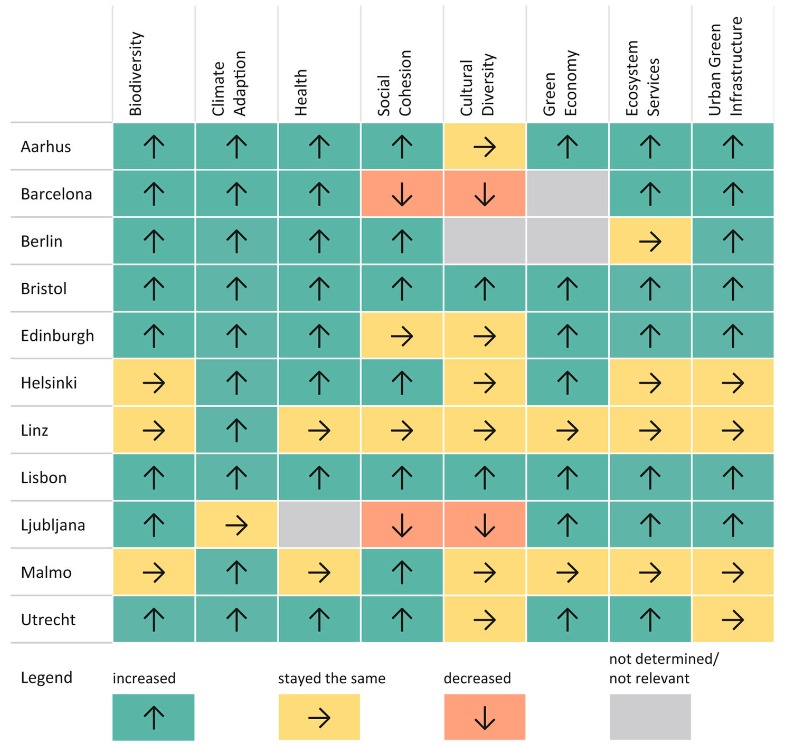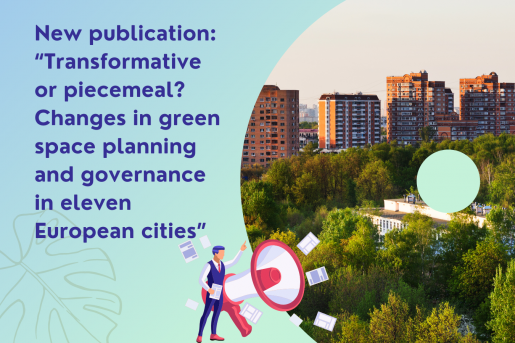New research paper examines the evolution of urban greening in eleven European cities
A new paper co-written by NICHES partner Johannes Langemeyer from the Institute of Environmental Science and Technology the Institute of Environmental Science and Technology at the The Autonomous University of Barcelona (ICTA - UAB) titled “Transformative or piecemeal? Changes in green space planning and governance in eleven European cities” explores the changing perspectives of representatives from eleven European countries on urban greening and related practices.
Green (and blue) spaces are becoming increasingly more important in the fight against climate change and in supporting biodiversity and the improvement of public health. Green spaces have the capacity to render urban areas more sustainable and resilient and there has been an increased pressure on policymakers in recent years to act for a sustainable transformation of cities.
Interviews were conducted within the framework of the research in 2014 and in 2020-2021 with the aim of comparing viewpoints on greening initiatives. In 2014 the EU-funded GREEN SURGE project studied 20 European cities revealing the differences and commonalities in approaches to e.g. protecting green spaces from densification, combating the effects of climate change or delivering more inclusive governance processes.
The follow up-study in 2020-2021 examined how perceptions of urban greening in 11 of those cities have evolved. The interviews reported progress in ecological management in terms of new plans, strategies, and regulations or funding programmes for climate adaptation or biodiversity support together with advancement in co-governance with non-governmental stakeholders (Fig. 1).

Fig. 1. Changes in relevance of different green space planning themes. The respondents rated changes in relevance of the eight themes compared to 2014. In some cases, no rating was provided.
The timing of the research is key as it was conducted in a period of increasing high-level policy support and public awareness for the benefits of urban green spaces and co-governance, combined with pressures to address social and ecological issues. However, several challenges remain such as long-term maintenance, securing sufficient funding, and changing organisational culture towards joint decision-making and partnerships with non-governmental stakeholders. Moreover, accounting for cultural diversity in green space planning and other aspects of social justice need to be considerably improved.
Above all, the paper finds a fundamental issue in limited resource availability and staff capacity caused by system-level structural conditions beyond the control of green space administrations or even municipalities. The solution is to integrate policy frameworks at multiple scales that support nature-based innovation and to consider ecological challenges as social issues too. Moreover, the role of an active civil society should not be underestimated due to their ability to exert pressure on decision-makers and to act as effective agents of change.
To learn more about the practices contributing to urban green transformation read the article here.
